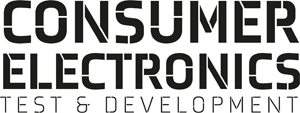The global testing and certification company said it was launching a strategic partnership with IEEE, the Institute of Electrical and Electronics Engineers Standards Association, “to further the aim of designing responsible and safe AI applications.”
The two bodies will work together in the development of standards, training and certification programmes addressing all aspects of AI.
There is growing concern among legislators and standards agency about the integration of AI into more and more areas of life, including consumer electronics.
The EU, for example, has a new AI Act, expected to come into force in 2025.
The new law aims at ensuring “comprehensive and extensive regulation of AI applications, and will cover a host of requirements in fields such as data privacy, safety and security, performance and sustainability,” TÜV SÜD said in a statement.
IEEE, meanwhile, has established an international standard for AI - the world’s first AI ethics standard – in the form of its IEEE 7000 series, and a certifiable framework with its CertifAIEdTM.
According to TÜV SÜD, the IEEE framework “complements TÜV SÜD’s broad approach to quality, which covers safety and security, data privacy and legal requirements as well as performance and sustainability criteria.”
Dr Andreas Hauser, CEO digital service at TÜV SÜD, said: “The European Union’s AI Act references the requirements outlined in the TÜV SÜD and IEEE framework.”
Hauser added: “Organisations all over the world now have the opportunity to attend qualified training in order to build up the necessary understanding of AI quality and to determine and improve their AI quality readiness. Comprehensive quality management provides the ideal conditions for successfully scaling AI applications, ensuring compliance and demonstrating the responsible AI use.”

